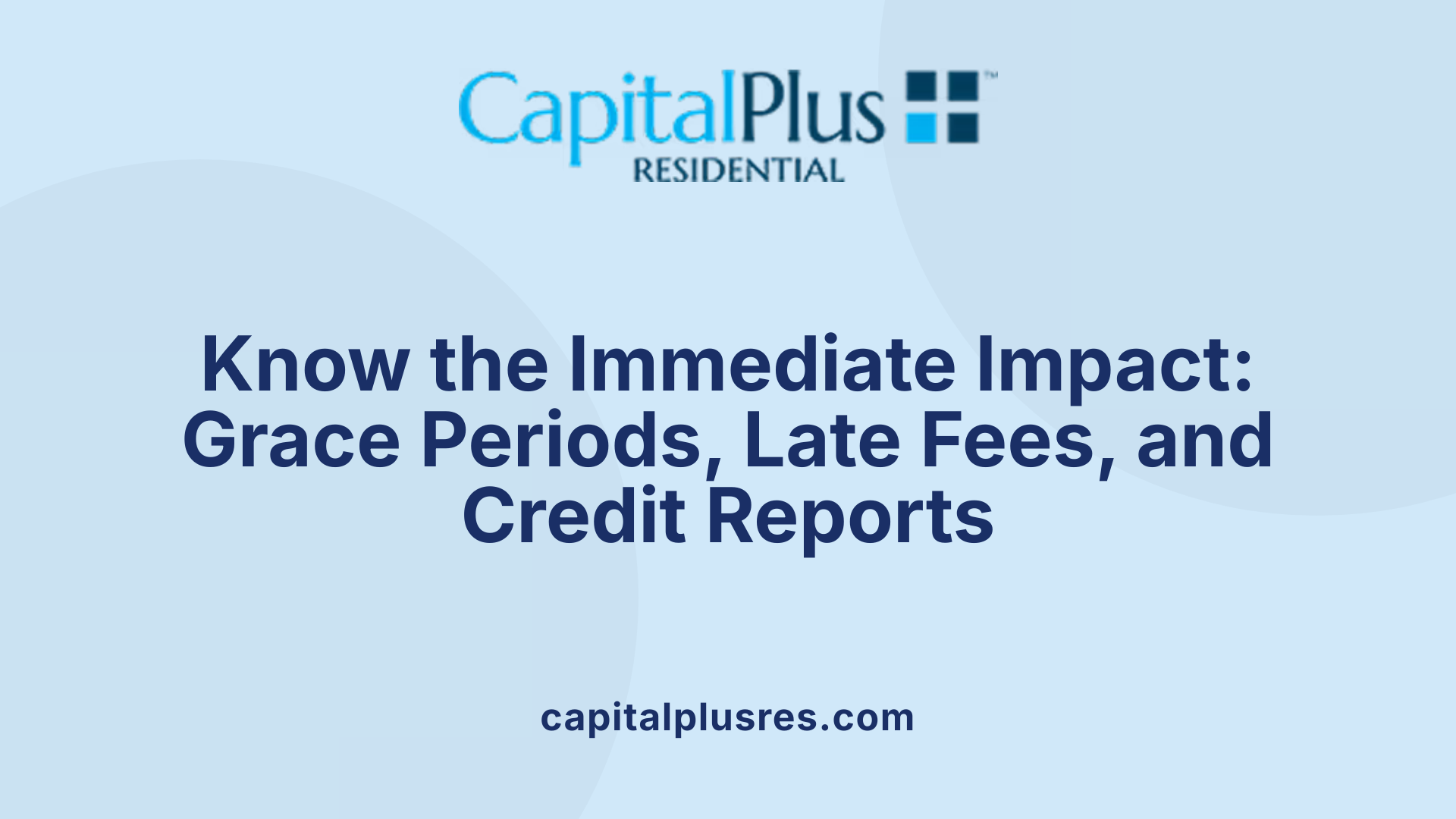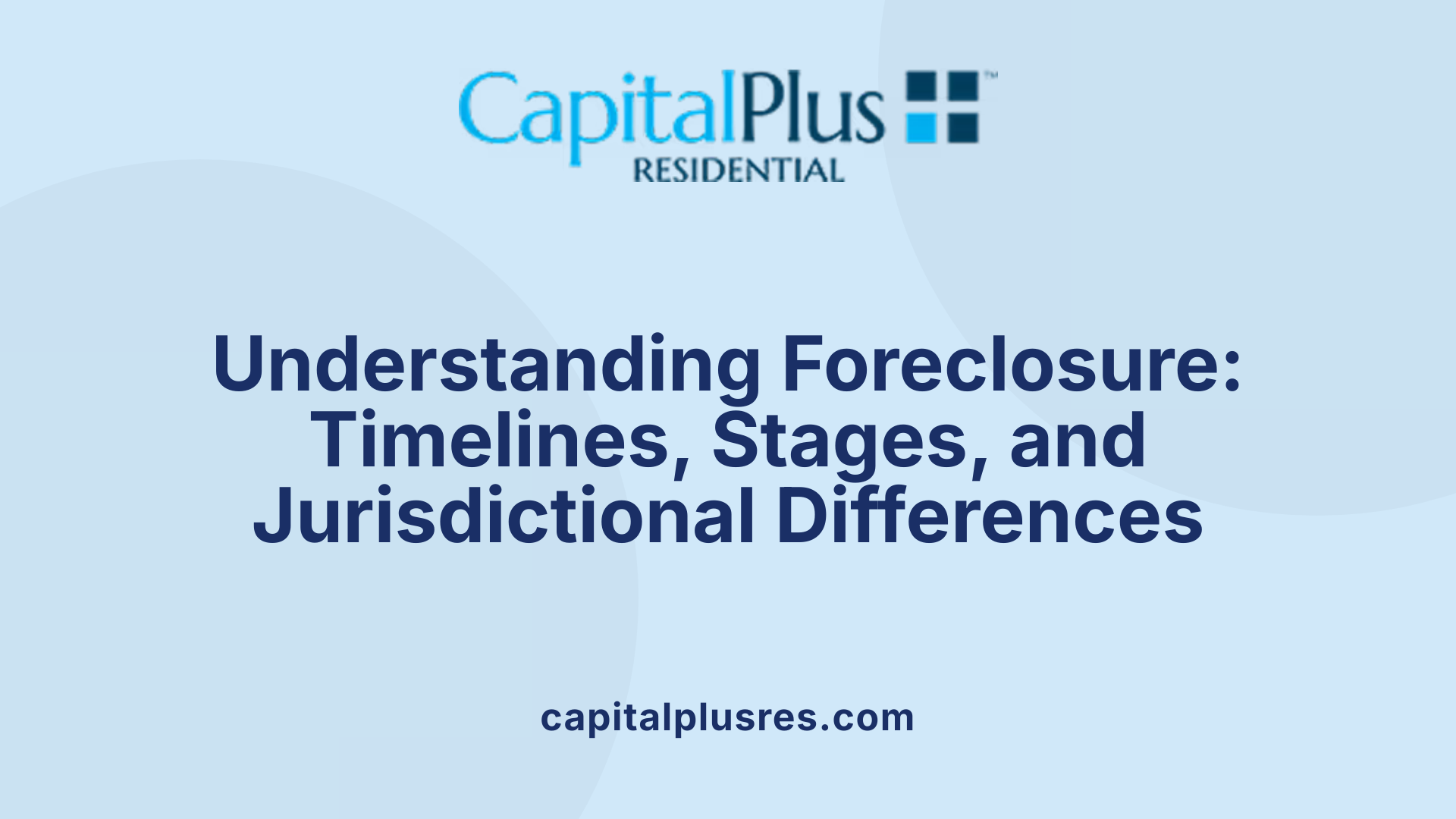Understanding the Risks Before Missing a Payment
Missing a mortgage payment can feel overwhelming, but knowing what to expect and how to respond can make a significant difference. This article breaks down the stages, consequences, and options available to help homeowners manage missed payments and avoid foreclosure.
Immediate Steps and Early Consequences of a Missed Mortgage Payment

What happens immediately after a mortgage payment is missed?
When a mortgage payment is missed, most lenders provide a 15-day grace period during which no penalties are applied. This means that if the payment is made within this window, the borrower usually faces no immediate consequences such as late fees or credit score damage.
Mortgage payment grace periods
The 15-day grace period acts as a buffer for borrowers, allowing them some time to make payments without falling behind officially. However, once this window closes without payment, the mortgage payment status changes to late.
Late fees and timing
Late fees typically begin to apply after 30 days of non-payment. These fees commonly range between $25 to $50. It's important to note that even if a borrower resumes payments after missing one, the payment remains noted as late—subsequent late or missed payments can cause additional fees and ongoing credit impacts.
Initial lender communications
Lenders generally reach out to the borrower shortly after a missed payment via phone, email, or letter. This contact serves as a reminder and a prompt for the borrower to bring their account current before escalation.
Credit report impacts
If payment remains unpaid 30 days after the due date, the lender reports the delinquency to credit bureaus. This negatively affects the borrower's credit score, and this record of late payment can stay on the credit report for up to seven years.
Definition of delinquency
From the mortgage due date, if a payment remains unpaid, the loan becomes delinquent starting from Day 1. Following the initial 15-day grace period and subsequent 30-day mark, the delinquency status intensifies, leading to potential late fees and credit consequences.
By understanding these early steps and consequences, borrowers can better manage missed payments and take timely action to avoid further financial difficulties.
Escalating Risks: Default Status and Foreclosure Timeline

When Does a Mortgage Default Occur?
A mortgage enters default status if a payment remains unpaid for more than 30 days past its due date. At this point, the lender may begin to take serious actions, which could lead to foreclosure or, in some provinces, a power of sale process. Default essentially signals an official breach of the mortgage agreement.
What Are the Stages and Timing of Foreclosure?
Foreclosure typically begins after 120 days of delinquency or four consecutive missed payments. The process usually unfolds in several key stages:
- Notice of Default: Issued after around 90 days of nonpayment, formally notifying the borrower of the default.
- Preforeclosure Period: The time where the borrower can attempt to catch up on payments or find alternatives.
- Notice of Sale: Sent out at approximately 120 days, informing that the property will be sold if payments are not made.
- Eviction: Occurs after the property is sold, when the borrower must vacate.
How Does Foreclosure Vary by Jurisdiction?
Foreclosure procedures significantly differ from state to state. Judicial states require court involvement, generally making the process longer and sometimes lasting up to six months. Non-judicial states allow lenders to proceed with foreclosure without court intervention, speeding up the timeline. Additionally, some Canadian provinces utilize mechanisms like the power of sale, which provides shorter notice periods and a faster transition of ownership.
Judicial vs. Non-Judicial Foreclosures
In judicial foreclosure states, the lender must file a lawsuit and obtain a court order to foreclose, which can be both time-consuming and costly. Non-judicial states allow lenders to foreclose via a deed of trust or power of sale clause, bypassing court and reducing time frames considerably.
What Is the Impact of Repeated Missed Payments?
Repeated late or missed payments exacerbate the situation by incurring late fees and worsening the borrower’s credit score. Missing one payment and resuming doesn’t erase the late status, and continued delinquencies can lead to a "rolling late" scenario with ongoing penalties. Persistent defaults increase the likelihood of receiving Notices of Default and ultimately foreclosure initiation.
| Stage | Timing | Description |
|---|---|---|
| Missed Payment | Day 1 | Payment missed; grace periods often apply |
| Late Fee Application | After 15-30 days | Fees may be charged for late payment |
| Default Status | After 30 days | Official mortgage default, triggers credit reporting |
| Notice of Default | Around 90 days | Formal notification sent to borrower |
| Notice of Sale | Around 120 days | Property sale notice issued |
| Foreclosure/Eviction | After sale completion | Property possession transferred, eviction possible |
Understanding these timelines and variations empowers borrowers to take timely action to avoid severe consequences associated with mortgage default and foreclosure.
Financial and Credit Consequences of Missing Payments

How do late fees and accrued debt impact finances?
Missing a mortgage payment often leads to late fees, which typically start accruing after about 30 days of non-payment. These fees can range from $25 to $50, adding to the financial burden of the borrower. Over time, these fees can increase the total debt owed, creating a cycle that is harder to break without repayment assistance.
What is the impact on credit scores?
Once a mortgage payment is overdue by 30 days, the lender usually reports the delinquency to credit bureaus. This negative mark on a credit report can lower a borrower's credit score, making it more expensive and difficult to obtain future credit or refinance existing loans. Late payments remain visible on credit reports for up to seven years, influencing creditworthiness for a long period.
What are the long-term implications for credit reports?
Even if the borrower resumes payments after missing one, the late payment status does not reset immediately. In cases where subsequent payments are missed or late, a 'rolling late' status can develop, meaning late fees continue to accumulate and credit damage persists. This long-term negative reporting significantly affects financial stability.
How do rolling late payments affect borrowers?
A rolling late situation arises when missed payments are followed by resumed payments, only to fall behind again. This ongoing pattern causes continuous late fees and repeated credit score penalties. As a result, it hinders the borrower's ability to recover financially and can prolong the negative consequences of non-payment.
How does missing payments affect future borrowing?
Damage to credit scores caused by missed mortgage payments can limit access to new loans or refinancing options. Lenders often require a history of consistent on-time payments, so a record of delinquencies raises concerns about payment reliability and increases loan costs or results in outright denial.
| Aspect | Impact Description | Timeframe/Details |
|---|---|---|
| Late Fees | Additional charges increasing debt burden | Start after ~30 days; $25-$50 typical |
| Credit Score Impact | Lowered creditworthiness due to reported delinquencies | After 30 days; affects borrowing costs |
| Long-Term Credit Report Effects | Late payments stay for up to 7 years, affecting credit | Persistent impact even after payments resume |
| Rolling Late Payments | Continuous late fees and recurring credit damage | Repeated missed/resumed payments |
| Future Borrowing | Reduced ability to refinance or obtain new loans | Based on credit history post-miss |
Options and Strategies to Manage Missed Mortgage Payments

What options exist for homeowners struggling with mortgage payments?
Homeowners who find themselves struggling with mortgage payments have several avenues to explore to prevent default or foreclosure. The most important first step is to proactively communicate with the lender. Early contact can open doors to tailored solutions before the situation worsens.
Proactive Communication with Lenders
By informing the lender about payment difficulties as soon as possible, borrowers can negotiate potential remedies. Lenders often appreciate transparency and may be willing to work out arrangements that suit both parties. This communication can help avoid unnecessary late fees and damage to credit scores.
Payment Plans and Forbearance
One common option is setting up a payment plan or repayment schedule to catch up on missed payments gradually. Mortgage forbearance may also be available, temporarily reducing or pausing payments to offer financial relief during hardship periods.
Loan Modifications and Refinancing
For longer-term solutions, loan modifications can adjust the mortgage terms to lower monthly payments, making them more affordable. Refinancing might also be an option, though lenders typically require a history of several months of on-time payments before approval.
Skip-a-Payment and Mortgage Deferrals
Some lenders provide skip-a-payment options, interest-only payments, or extensions to the amortization period. These strategies reduce immediate financial burden but should be used with an understanding of how they affect loan balances and future payments.
Automatic Payments and Prevention Tips
To prevent missed payments, borrowers are encouraged to set up automatic withdrawals and maintain a spending cushion. Automating payments reduces the chance of oversight, and having reserves ensures funds are available even during tight financial periods.
Being proactive and informed allows homeowners to manage missed mortgage payments more effectively, maintaining homeownership and protecting credit standing.
Avoiding Foreclosure: Alternatives and Legal Considerations
How can homeowners avoid foreclosure and what legal help is available?
Foreclosure is a serious consequence of missed mortgage payments, but there are several strategies homeowners can use to avoid it. One common approach is reinstatement, which involves paying all past due amounts to bring the mortgage current. Another option is negotiating with lenders for forbearance, allowing temporary payment reductions or pauses, or setting up repayment plans to spread missed payments over time.
Sometimes, lenders agree to loan modifications—changing loan terms to make monthly payments more affordable. When these options aren't viable, homeowners may consider selling the property through a traditional sale, a short sale (selling for less than the mortgage balance), or deed in lieu of foreclosure (voluntarily transferring ownership to the lender). While these alternatives can help avoid foreclosure, they often have tax consequences and can impact credit scores differently.
Legal assistance plays a crucial role during foreclosure avoidance. Lawyers help homeowners understand their rights, navigate state-specific foreclosure laws, and contest deficiency judgments if the sale of the home doesn't cover the owed amount. In some cases, filing for Chapter 13 bankruptcy can enable borrowers to reorganize debt payments and retain their homes, but it carries significant long-term credit effects and should be considered a last resort.
Government programs and counseling agencies also provide valuable help. They educate borrowers on their options, assist in negotiating with lenders, and warn against foreclosure scams. Early communication with lenders and seeking counseling can significantly improve the chances of saving a home.
Table: Foreclosure Avoidance Options and Legal Aspects
| Option | Description | Legal/Financial Considerations |
|---|---|---|
| Reinstatement | Paying all overdue payments to cure default | Prevents foreclosure, restores mortgage status |
| Forbearance | Temporarily lowered or paused payments | Requires lender approval, may increase total debt |
| Repayment Plans | Adding missed payments to future installments | Helps spread out debt, keeps loan current |
| Loan Modification | Changing loan terms to lower payments | May affect credit, requires lender consent |
| Short Sale | Selling home for less than owed | May result in deficiency judgments, impacts credit, possible taxes |
| Deed in Lieu of Foreclosure | Voluntarily transferring property to lender | Avoids foreclosure, impacts credit less than foreclosure |
| Chapter 13 Bankruptcy | Court-based debt reorganization to keep home | Long-term credit damage, legal cost, last resort |
| Counseling & Government Programs | Free or low-cost advice and assistance | Helps avoid scams, improves negotiation outcomes |
Navigating Missed Payments: Take Action Early
Missing a mortgage payment can spiral into serious financial and legal challenges, but understanding the process and options helps homeowners protect their credit and keep their homes. Early and open communication with lenders, exploring available relief programs, and proactive financial management are essential steps to mitigate damage and avoid foreclosure. Homeowners facing difficulties should seek professional guidance promptly to find tailored solutions and maintain stability.
References
- What Happens When You Miss a Mortgage Payment?
- Here's What Happens If You Miss a Mortgage Payment
- Consequences of Missing a Mortgage Payment
- What happens if you miss a mortgage payment?
- Penalties & Consequences of Missing a Mortgage Payment
- Trouble Paying Your Mortgage or Facing Foreclosure?
- Mortgage Delinquency: What Happens When You Miss a ...









